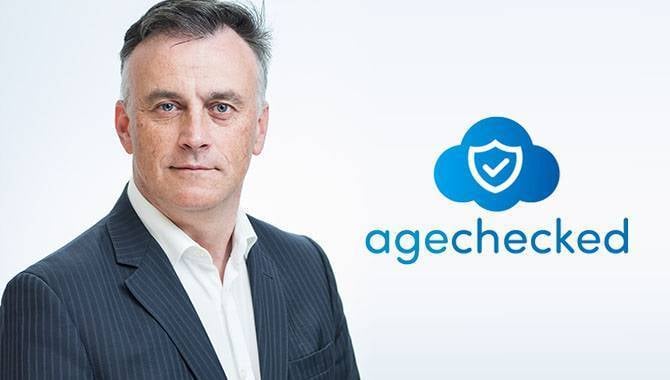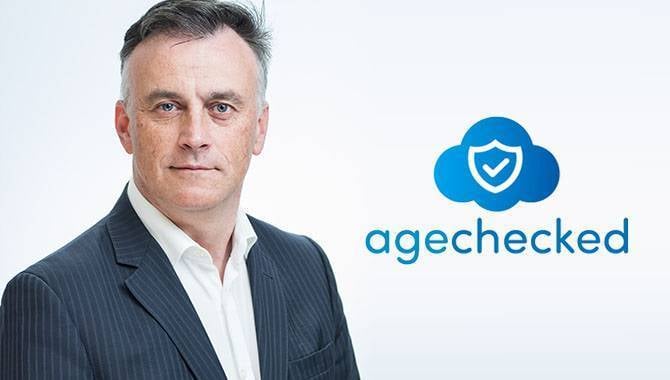
Graham specialises in the field of age verification and began working more closely with gaming companies once the Gambling Commission introduced new License conditions and codes of practice (LCCP) on 7 May.
Can you give us an introduction into AgeChecked and what the company does?
Our firm specialises in age verification for online companies. That includes gambling but also the vaping industry, the adult content industry and multiple sectors. Gambling is one of our significant sectors and we work with operators for their online verification. We don’t do any verification for land-based casinos.
How did your career lead you to AgeChecked?
AgeChecked started during a Christmas holiday, when I was sitting with my nephew on a couch. He was watching something on Youtube which was really inappropriate; he was quite a young chap. His mum had left the room and he turned the TV off and put on Youtube – which she didn’t even know he could do. He started watching a bunch of eight-year-old boys teasing a six-year-old girl in an inappropriate way.
I started thinking about what’s wrong with this scenario and there were effectively two things. One: there was no regulation stopping Youtube, which can do a billion page views a day, from allowing this to happen. There was also no technology stopping this from happening. So it started as a thought experiment on how to stop my nephew seeing inappropriate things online. It snowballed; I was in the payments industry at the time and we built a payment-based age verification solution, so you could only accept money from someone over 18. I then created a team looking at what regulations needed to be in place.
The Gambling Commission later brought in changes to the LCCP and looked at how to protect children. So we saw there’s a crossover between us protecting content online and the solutions the gaming sector is looking at. That’s effectively the route from concept, to me founding AgeChecked, to where we are today.
Do you have a dialogue specifically with the Gambling Commision?
I’m the Co-chairman of the Age Verification Providers Association and we have had interaction through that trade association. To be frank, we would have liked more communication over the new LCCP rules. That’s something we would like to develop more with the trade association. There’s a lot of new technology coming out of regulation of other sectors that’s applicable to online gambling. We’d like to ensure the Gambling Commission is aware of the technologies available.
I’ve got no reason to believe that’s not something we can achieve in the future. I should say: that’s not problematic in any way. It is a regulator’s prerogative to say “this is what we want to happen” without knowing how it will happen. That’s entirely reasonable and completely acceptable. It’s just always good to share information.
How do AgeChecked solutions play a part when it comes to gaming?
There are two ways gambling companies can use our services. Gambling companies have information on their customers which we can do age verification checks on, with the consent of that customer. The other way is, should information be shared with us that doesn’t create a match, we have a service whereby the operator can temporarily hand over the online session to us. We would then ask the customer to directly enter details into a portal.
That’s particularly useful for customers who may have moved recently or received a brand new driving license etc. They actually are over 18 and can prove it but the databases out there are out of date. This allows us to increase match rates, which is a significant benefit. No gaming operator wants to send away a legitimate customer; our technology makes it very easy for a customer to supply the extra information they need to get them through. In essence, it reduces friction for unmatched players.
AgeChecked is able to manage unmatched customers in a very different way to a standard provider, where you just plug in an API and send details to that customer. Our escalation automatically goes into an environment where the customer can very easily gain the right information. That ability for us to manage this on behalf of operators in a very frictionless way is our biggest differentiator.
How have the new LCCP regulations affected AgeChecked?
It’s definitely had an effect. The measures were brought in quite quickly, so there was an urgency to fulfil the requirements of the regulations by 7 May. A company could very quickly adopt these new age verification technologies. Alternatively, it could move all the identity-type solutions right to the front of the process, which would fulfil the requirements on the effective date. Then it would introduce the new technologies in a compliant fashion, slowly removing those front-end KYC solutions.
KYC has quite an expense related to it, especially if you’re offering a lot of free play. The regulations for free play mean age verification for everyone, even those who may never deposit. So you really want to have an age verification solution rather than an identity solution. That’s our speciality.
We’ve got customers who have taken that compliant route to do identity at free play. Other clients had to stop free play and will be able to reintroduce it with our solution. There are a number of routes operators have taken to comply by 7 May.
Do you think the new regulations serve their purpose suitably?
I think they set out what they want to do very clearly. The move to bring in more social responsibility measures, especially in protecting children, I think is a very positive one and something the UK should be very proud of. The UK seems to be leading the way in online child protection; this is very much part of that move. The way this was brought in and the way operators have adopted these regulations so rigidly can only be a good thing.
Do you work with a lot of international companies in jurisdictions which have perhaps done less than the UK?
I’d put it slightly differently and say I actually see other jurisdictions following the UK very closely. So I’m sure these regulations will be adopted in other jurisdictions. We do work with companies in other markets and they expect their jurisdictions to be following these regulations soon as the Gambling Commission is so influential.
Do you think operators will inevitably lose out on the bottom line as a result of these new regulations, or can AgeChecked help reduce friction?
I don’t see it as harming the bottom line in any way, really. The technology created in age verification has been designed to be extremely efficient and get as many customers through an age gate as fast as possible. It’s fair to say I don’t see this as problematic. It’s not an invasive or restrictive regulation.
In a previous interview, Gambling Insider was told there was a lot of panic among operator CEOs about these regulations. Is that something you sensed?
Personally, I think “panic” is putting it too strongly. There was definitely a rush and there was not much notice. Some operators’ business models were barely affected by this at all, whereas others had to make significant changes. The companies who rushed the most are the ones who were committed to implementing this new technology by 7 May. That is a very ambitious timeline and we were able to get some customers through on that.
Others took the decision not to rush and make the necessary changes for 7 May, starting a normal integration plan afterwards. There was definitely a period of “what does this mean for us” and there was a lot of focus on this from compliance departments. But I don’t think I’d categorise it as panic.
Is the industry as caught up as it should be with age verification?
Purely from an age verification point of view, I actually find the gambling industry extremely on the ball when it comes to regulation. The level of compliance and level of understanding what the laws are is second to none as far as other sectors we’re dealing with are concerned. It can be extremely complex: operators working across multiple jurisdictions and dealing with multiple regulators are still up to speed in a very complex regulatory environment. Generally, I’ve been very impressed with gaming operators.
What kind of targets do you have working with gaming companies moving forward?
We’re certainly new to this sector and it wasn’t until the new LCCP changes that this was a target sector for us. We’re the new kids on the block; I’d like by next year for us to be recognised as a significant player in the field of age verification and potentially an alternative approach to KYC. That would be my goal.
To finish off, what are the biggest challenges you face in achieving that goal?
The standard challenges of any company are making sure our technology keeps up with the evolving requirements of the regulator. In fact, it has to be slightly ahead of regulations so we have solutions which can be integrated immediately. The technical challenge is always there and, commercially, we need to ensure we have enough visibility for people to approach us and let us help them.



